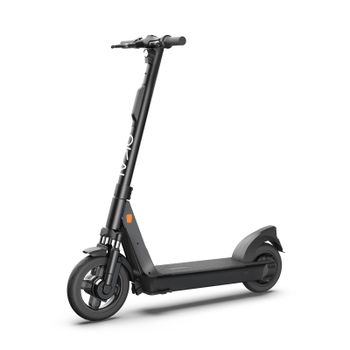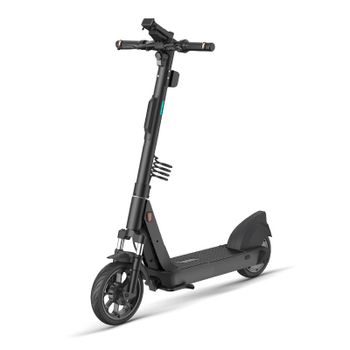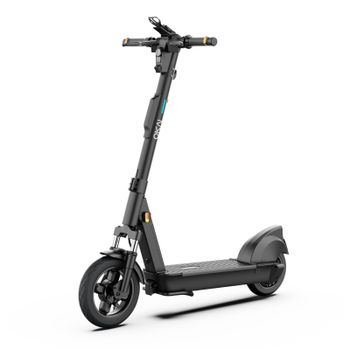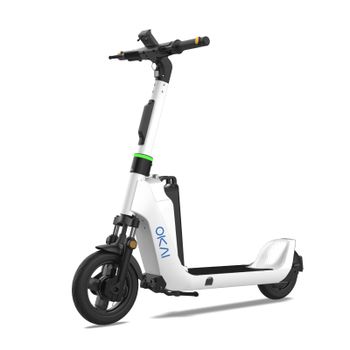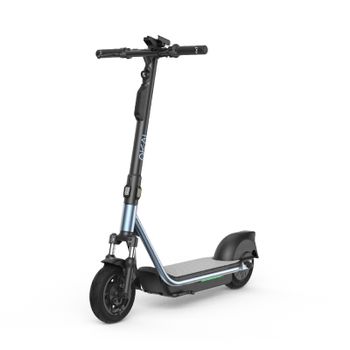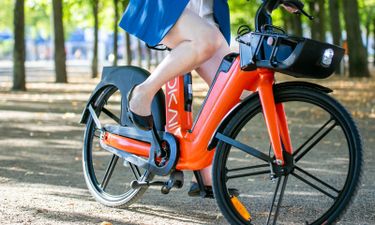Are E-Scooters Automotive Vehicles?
Electric scooters, or e-scooters, have surged in popularity as an eco-friendly, convenient, and cost-effective alternative to traditional vehicles. With an increasing presence on city streets worldwide, a question arises: Are e-scooters considered automotive vehicles? In this blog, we explore this topic, leveraging insights from industry leaders like OKAI, which specializes in developing and manufacturing top-tier electric scooters and solutions.
What Defines an Automotive Vehicle?
Before we delve into whether e-scooters fit into the category of automotive vehicles, let's first define what an automotive vehicle is. Typically, automotive vehicles are categorized as wheeled vehicles that are motor-powered and are used for transporting passengers. They include cars, trucks, buses, and motorcycles. These vehicles are primarily designed for road use and come with features such as engines or motors, a chassis, seating accommodations, and more.
E-scooters, on the other hand, are lighter, compact, and powered by electric motors. They have a simple design consisting of a handlebar, a deck, and wheels. Despite their simplicity, e-scooters offer a robust solution for urban mobility, allowing users to navigate through traffic more efficiently and with a smaller environmental footprint.
E-Scooters: Urban Mobility Solutions
The Rise of E-Scooters
In recent years, the e-scooter market has witnessed exponential growth. According to market research, the global electric scooter market size was valued at approximately $20 billion in 2020 and is expected to surpass $40 billion by 2030. This growth is driven by an increasing awareness of environmental issues, rising fuel prices, and the need for more agile urban transportation solutions.
Companies like OKAI are at the forefront of this transformation. OKAI's range of electric scooters featured prominently on their website, are not only designed for individual use but are also robust enough for sharing schemes offered by urban mobility providers. These scooters are engineered for durability, long battery life, and safety, making them a preferred choice in cities worldwide.
E-Scooters as Part of the Automotive Spectrum
While traditional definitions of automotive vehicles focus on cars and motorcycles, the evolving landscape of urban mobility suggests a broader definition. E-scooters though not automotive in the traditional sense, play a crucial role in the automotive ecosystem, particularly in urban settings. They serve as a complementary mode of transport, often used in conjunction with public transportation or cars, to cover the "last mile" of a journey.
OKAI's innovations in the field highlight how e-scooters are integrated into the broader automotive ecosystem. Their products are equipped with advanced features such as app integration, GPS tracking, and smart locking systems, aligning with many features found in modern automotive vehicles.
Environmental Impact and Future Trends
Sustainability and Eco-Friendliness
One of the most significant advantages of e-scooters is their positive environmental impact. Being electric, they emit no pollutants and help reduce traffic congestion. Studies suggest that cities with high adoption of e-scooters and other electric mobility solutions witness a noticeable reduction in carbon emissions.
OKAI’s commitment to sustainability is evident through their production practices and the efficiency of their scooters. By choosing materials that are durable and eco-friendly, they ensure that their products not only meet but exceed the ecological standards expected of modern transportation solutions.
The Future of E-Scooters in Urban Transport
The future of urban transportation is shifting towards more sustainable and flexible solutions. E-scooters are likely to play an even more significant role, with advancements in technology making them safer, more comfortable, and more integrated with other forms of transport. Governments are beginning to recognize e-scooters as an essential part of the transportation matrix, leading to better infrastructure, such as dedicated lanes and parking spaces.
Conclusion: Are E-Scooters Automotive Vehicles?
While e-scooters might not fit the traditional definition of automotive vehicles, they are undoubtedly an integral part of the automotive landscape, especially in urban areas. As we move towards more sustainable living and smarter cities, e-scooters like those offered by OKAI provide a glimpse into the future of mobility.
Whether for a quick commute, a ride through the city, or as part of a larger transport solution, e-scooters are here to stay. They offer a unique blend of convenience, efficiency, and environmental friendliness, making them a pivotal component of modern urban transportation.
Visit OKAI to learn more about how their cutting-edge e-scooters are paving the way for this exciting future.

